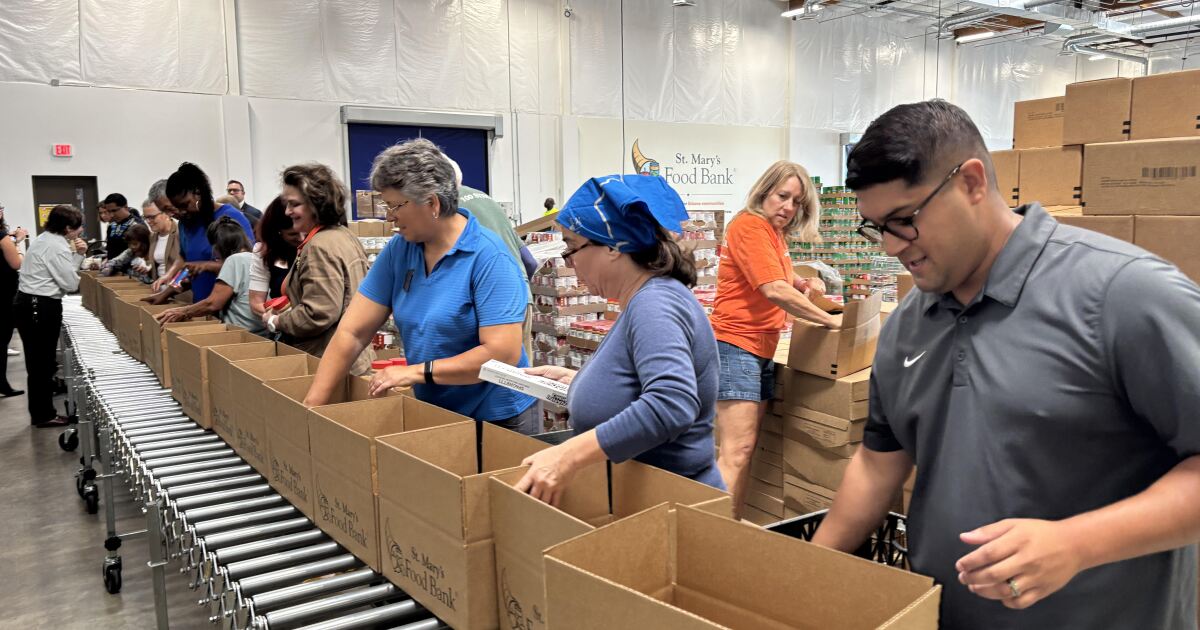Upcoming cuts to federal food assistance programs will shift costs to feed needy Arizonans onto the state and charitable groups, like food banks.
The tax cut and spending plan backed by President Donald Trump included several changes to the Supplemental Nutrition Assistance Program, formerly known as food stamps, including upping the state’s portion of administrative costs from 50% to 75%.
According to budget analysts at the Arizona Legislature, that will cost Arizona a projected $33 million next year.
The federal government has historically covered all SNAP benefit costs. But the new legislation will require states to cover a portion of those costs beginning in 2028 if its error rate exceeds 6%. The error rate refers to how accurately states determine who is eligible for benefits.
Arizona’s error rate last year was 8.8%. If that rate remains consistent in the coming years, it will cost the state $139 million in 2028 and $185 million in 2029, according to legislative budget staff.
Gov. Katie Hobbs has long warned that the state doesn’t have the money to make up for all federal cuts included in Trump’s bill, including changes to federal Medicaid and food spending.
“But we are going to rely more and more on community partners like the St. Mary’s Food Bank Alliance and other folks who are meeting those basic needs, because of the federal cuts,” Hobbs said during a recent visit to a St. Mary’s Food Bank volunteer center in Phoenix.
Terri Shoemaker with the Arizona Food Bank Network said food banks have long filled that gap, providing help to people who don’t qualify for federal assistance.
“And the gap is going to get bigger,” she said. “We already know that there are about 700,000 people each month seeking help from food banks, and that’s just going to get worse if fewer people qualify for help.”
Congress also approved new work requirements for SNAP that could result in 2.4 million people nationwide losing eligibility.
Hobbs said she’s concerned that increased demand could overwhelm the state’s food banks.
“It’s why we fought really hard to get the nutrition assistance in the budget that we did,” Hobbs said, referring to state food assistance funding in the budget she signed in June, including $3.8 million to provide free meals to qualifying school children.
Shoemaker said it’s still difficult to gauge exactly how food banks will be impacted by the changes in federal food assistance legislation.
“What I do know is food banks are very resourceful,” she said.
Shoemaker said food banks in Arizona and across the country are already discussing how they can partner to reduce costs and prepare to provide for more residents in need. That includes partnering to make bulk purchases to take advantage of economies of scale.
“If we have to purchase product, and we have 50 food banks purchasing it, it’s probably going to be cheaper than if we have one,” she said.
